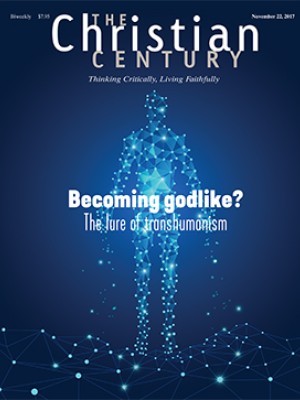December 17, Advent 3B (John 1:6-8, 19-28; Isa. 61:1-4, 8-11; 1 Thess. 5:16-24)
Like John the Baptist, progressive Christians tend to define ourselves in the negative.
When I was a little girl in Virginia, my elders taught me to introduce myself to adults, and especially authority figures, by looking them in the eye and identifying myself clearly. That might mean saying I was my father’s daughter or my grandmother’s grandchild. I spoke to adults at church and, as the child of a politician, at public events. While my daddy was in the U.S. Senate, I attended a carnival at the White House for congressional families. My brother was sick and my mother had to stay home with him, but she arranged for another family to take me along. I think I was six or seven.
At some point I turned around and lost the mom and kids I was with; I could not remember what they looked like. The mom’s late-1960s bouffant hairdo looked much like all the other bouffants on the White House grounds, and I had mostly seen her from behind, riding in the car. A White House staff member noticed my lost expression and asked if I needed help. “What is your name?” she asked. She looked trustworthy. She wore a navy blue blazer with a name badge on the breast pocket and had a well-coiffed updo. I knew the answer to her question, even though I could not remember who brought me. My clearest memory of the day is sitting in an office at the White House, telling a broad-shouldered Secret Service agent my name and my father’s name and my mother’s name and my address and my phone number. I told them my whole story.
Read our latest issue or browse back issues.
Who are you? In the beginning, by the sixth verse of the Gospel of John, the omniscient narrator makes sure we readers know the name and mission of an important character, who confusingly bears the same name as the book. He is a man with a mission: to bear witness to a mystery. Hardly is he introduced before he runs afoul of the religious authorities. In this Gospel John’s ministry history unfolds via an interrogation. “Who are you?”
John does not deny being sent by God. But he admits, “I am not the Messiah.”
How often do we define ourselves in the negative? There’s a tendency among moderate-to-progressive Christians to differentiate themselves from more conservative folk by describing themselves as “not that kind of Christian.” I understand and even sympathize, but a negative definition cannot describe us in full—and it certainly will not offer an invitation to the person asking the question. Wherever we may find ourselves on the theological spectrum, we need to work out a different kind of answer to the question. Who are we? In this age of easy labeling, we may be reluctant to say.
John answers with more negatives. (He is not Elijah; he is not the unnamed prophet.) Even when he is asked what he says about himself, he defers to Isaiah: “I am the voice of one crying out in the wilderness.” He does not call upon the heritage described in Luke’s Gospel, and he does not make more of himself. His own identity does not matter as much as the testimony God sent him to offer and the preparations God sent him to make.
Suppose we were asked to define ourselves not by name but by a meaningful verse of scripture. We could find several in the lectionary this week, verses that would call us to action and change the course of our lives. God “has sent me to bring good news to the oppressed, to bind up the brokenhearted, to proclaim liberty to the captives, and release to the prisoners” (Isaiah 61:1b). “Give thanks in all circumstances; for this is the will of God in Christ Jesus for you” (1 Thessalonians 5:18). “I am the voice of one crying out in the wilderness, ‘Make straight the way of the Lord,’ as the prophet Isaiah said” (John 1:23).
Who are you? Imagine answering with scripture that guides your life both in public and in private, scripture that drives you to act, scripture that sums up your purpose. In recent months, from the safety of my home in south central Pennsylvania, I have watched the Facebook Live streaming videos shared by clergy friends protesting for racial and economic justice in cities across the United States. I admire them, I worry about them, and I pray for them without ceasing. While writing this essay, I had an eye on a live video, hoping to see a friend get out of jail after her arrest at a peaceful protest in St. Louis. I have checked and rechecked her Twitter feed for updates. I picture her in jail without her phone, or released with a battery drained dead overnight. I have to believe that if I asked her who she is, she would know the scriptures that direct her and keep her going.
Who am I? The essential tenets of my early faith education included “Blessed are the peacemakers.” At my house that meant “Don’t make trouble.” As a lost child, I immediately trusted someone wearing an official name badge—because trust for authority figures was a key part of my early civic education. But it is hard to make a gospel case for this, whether the authorities in question are civic or religious, if we look to the life of John or the one who came after him. Priests, Levites, Pharisees, scribes, soldiers, governors, and kings opposed them both. John had barely gotten started making a way when the religious leaders rolled up to question him.
Who are you? Somewhere, between the beginning and the end, the answer is in God’s word.






